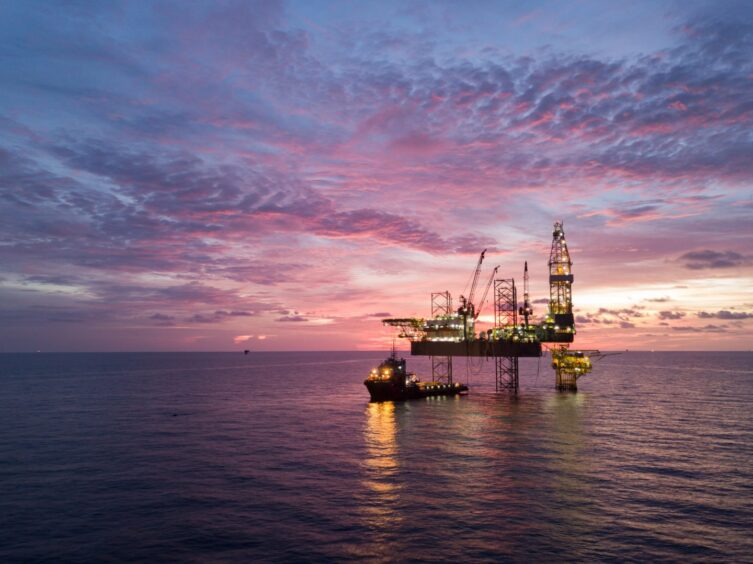
US President Joe Biden has announced a ban on offshore oil and gas drilling across vast swathes of the country’s coastal waters.
The decision comes just weeks before his successor Donald Trump, who has vowed to increase US fossil fuel production, takes office.
The drilling ban will affect 625 million acres of federal waters across America’s eastern and western coasts, the eastern Gulf of Mexico and Alaska’s Northern Bering Sea.
The decision does not affect the western Gulf of Mexico, where much of American offshore oil and gas production occurs and where drilling is set to continue.
In a statement, President Biden said he is taking action to protect the regions “from oil and natural gas drilling and the harm it can cause”.
“My decision reflects what coastal communities, businesses, and beachgoers have known for a long time: that drilling off these coasts could cause irreversible damage to places we hold dear and is unnecessary to meet our nation’s energy needs,” Biden said.
“It is not worth the risks.
“As the climate crisis continues to threaten communities across the country and we are transitioning to a clean energy economy, now is the time to protect these coasts for our children and grandchildren.”
Offshore drilling ban
The White House said Biden used his authority under the 1953 Outer Continental Shelf Lands Act (OCSLA), which allows presidents to withdraw areas from mineral leasing and drilling.
However, the law does not give a president the right to unilaterally reverse a drilling ban without congressional approval.
This means that Trump, who pledged to “unleash” US fossil fuel production during his re-election campaign, could find it difficult to overturn the ban after taking office.
Trump himself used the law to ban sales of offshore drilling rights in the eastern Gulf of Mexico off the coast of Florida until 2032 during his first term as president.
After US media reported late last week that Biden would issue the wider ban, Trump’s incoming press secretary Karoline Leavitt called the move “a disgraceful decision designed to exact political revenge on the American people who gave President Trump a mandate to increase drilling and lower gas prices”.
Alongside his criticisms of Biden’s signature climate and energy policies, last week Trump also called for the UK government to “open up the North Sea” for drilling.
Decision ‘not particularly consequential’
However, US energy analysts have said the decision will make little difference to US oil production, which reached record highs under the Biden administration.
Oil Price Information Service global head of energy analysis Tom Kloza told CNN last week that the ban is “not particularly consequential for US exploration and production going forward”.
“I don’t see it as having any real impact on US supply, exports, imports,” Kloza said.
Wood Mackenzie US Gulf of Mexico upstream senior research analyst Miles Sasser told Energy Voice that no drilling activity is taking place in the areas covered by the ban.
“The 625 million acres included in today’s Biden executive leasing ban were not in our leasing or exploration forecasts. Many already had state moratoriums or bans,” Sasser said.
“This Biden ban under OCSLA will make it harder for a future government to ever open these regions for new leasing, but not impossible.”
Sasser said the US Gulf Coast remains an “important part of the global deepwater upstream sector”, focused on the existing Texas and Louisiana regions, and the decision will likely have “little to no impact” on mature basins elsewhere like the UK North Sea.
Similarly, Sasser said the offshore drilling sector is seeing “wide diversification globally”, with growth in countries like Guyana, Namibia and Uruguay which “are not entertaining early exploration bans”.
US industry urges reversal
Despite this, the US oil and gas industry reacted strongly to Biden’s announcement.
American Petroleum Institute president and chief executive Mike Sommers urged US policymakers to reverse the “politically-motivated decision”.
“American voters sent a clear message in support of domestic energy development, and yet the current administration is using its final days in office to cement a record of doing everything possible to restrict it,” Sommers said.
“Congress and the incoming administration should fully leverage the nation’s vast offshore resources as a critical source of affordable energy, government revenue and stability around the world.”
Independent Petroleum Association of America (IPAA) offshore committee chairman Ron Neal described the decision is “significant and catastrophic”.
“While it may not directly affect the currently active production areas in the Outer Continental Shelf (OCS) and adjoining coastal areas, it represents a major attack on the oil and natural gas industry,” Neal said.
“This should be seen as the ‘elephant’s nose under the tent.’ The ban severely limits potential for exploration and development in new areas therefore chocking the long-term survivability of the industry.”
Drilling ban a ‘strong political signal’
Meanwhile, environmental groups have welcomed the move with Oceana campaign director Joseph Gordon describing it as an “epic ocean victory”.
“Our treasured coastal communities are now safeguarded for future generations,” Gordon said.
Uplift head of research and policy Daniel Jones said the ban is “another sign of the momentum away from oil and gas”.
“It sends a strong political signal to other nations making efforts to transition and a message to investors that the time to end oil and gas expansion is now,” Jones said.
“Oil and gas firms will push back, and Trump – a man who has been generously funded by oil and gas interests – will do everything in his power to allow unlimited drilling and keep the world hooked on expensive fossil fuels, protecting the interests of the US oil and gas industry and its wealthy executives at home and abroad.
“But the world is moving on.”
Recommended for you


